Destination Guide
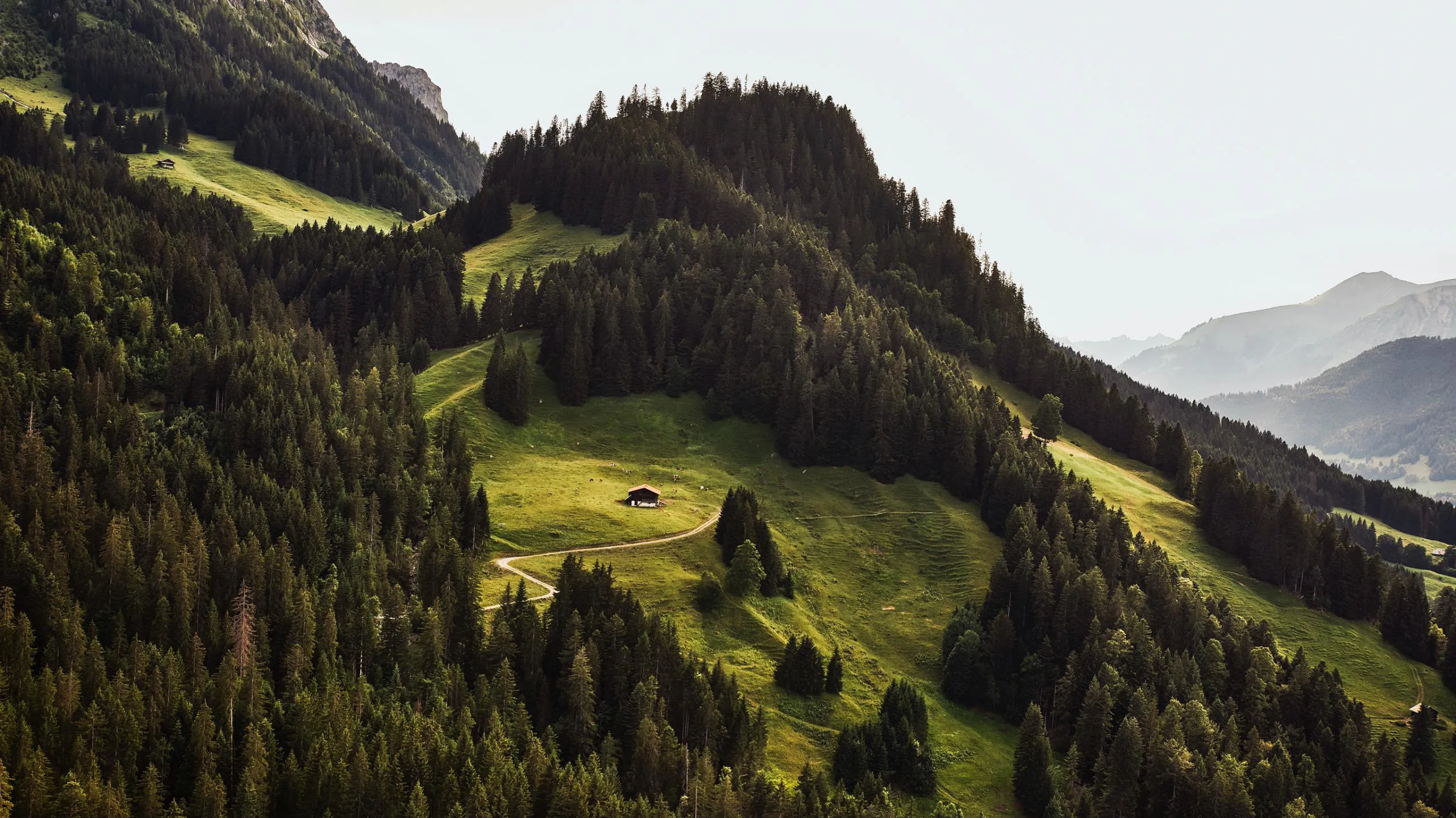
It’s not your fault that you’re naturally curious. Curiosity is a characteristic that distinguishes us as a species from other animals, a tendency from childhood not just to poke and prod our surroundings but to also ask “why” as we search for knowledge. This inner drive to explore has taken us to both the dark side of the moon and the depths of the subatomic world, but to truly understand our place on the planet, it’s important to return to nature—a place where we can nurture our primordial curiosities.
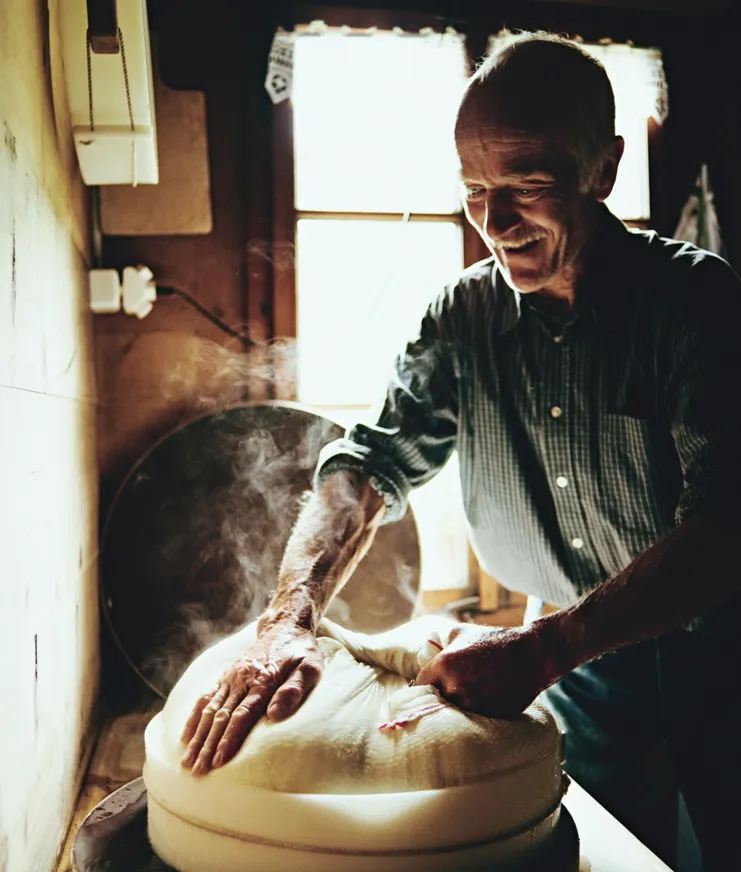
A traditional Swiss cheese maker
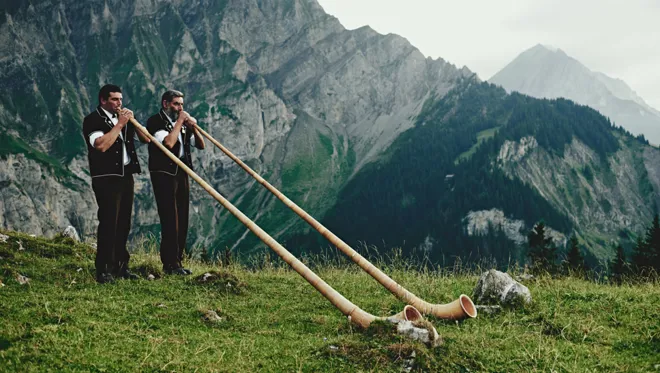
The alphorn is a traditional musical instrument of the Swiss, Austrian, French, and Bavarian Alps
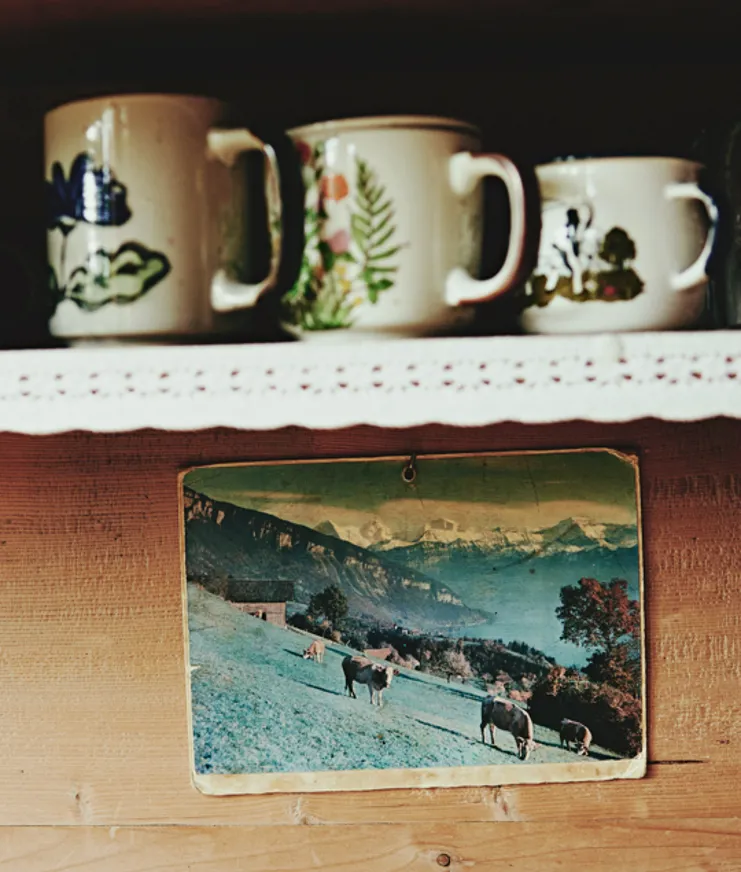
This landlocked central European country is dominated by the Alps, peppered with thousands of small villages, and home to a handful of cities. Although most of the population lives in urban areas, the country’s small size and excellent highways and byways means that wherever you are, you are never far from the natural world.
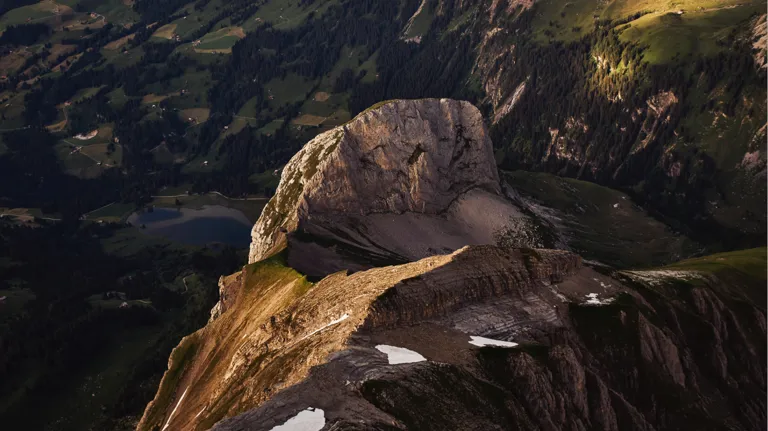
The Spitzhorn In the Bernese Alps
When you look out across the Alpine landscape, you technically don’t see much mountain—you see forests. Many Swiss literally owe their lives to these forests, as they protect from avalanches, rock-falls, and mudslides. Moreover, the health benefits of spending time in the woods are well documented and act as an antidote to the sensory overload of modern life, with The New York Department of Environmental Conservation noting reductions in stress, boosts to the immune system, acceleration in recovery time from illness or surgery, increase in energy levels, and improved sleep among those who spend time in forests.
The Japanese even coined a term for it—shinrin-yoku—meaning “to take in the forest atmosphere”. Many also believe there are spiritual advantages to be had when “grounding” oneself to the Earth’s electrical charge by traversing wooded worlds while barefoot—quite literally in our most natural state.
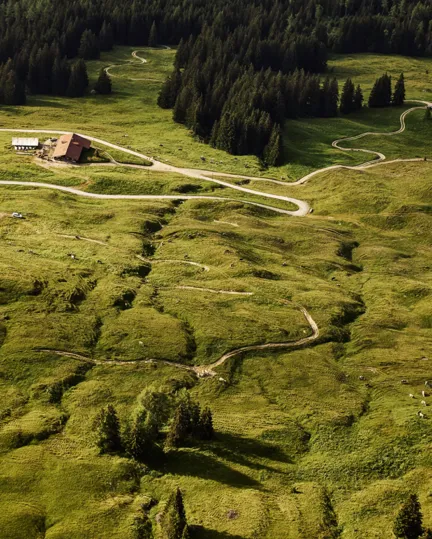
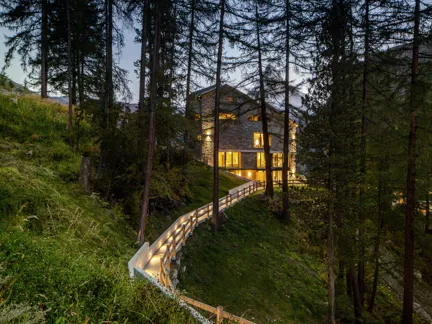
Cervo Mountain Boutique Resort in Zermatt
Switzerland is home to hundreds of species of medicinal plants that are used both professionally and as a primary tenet of healthcare. Before the era of industrialization, the specific powers and health benefits of individual species was common knowledge, but medicinal plants today have mostly taken a backseat to bottled-up products straight from the lab and more conventional medicine. Which is why Switzerland is so special. To take a hike here is to literally stroll through a natural pharmacy, although many species are endangered so it’s best to book yourself onto an herbal tour or workshop with a local expert, such as chemist Peter Brechbühl in the town of Sigriswil just outside Thun or Martin Koradi in Basel.
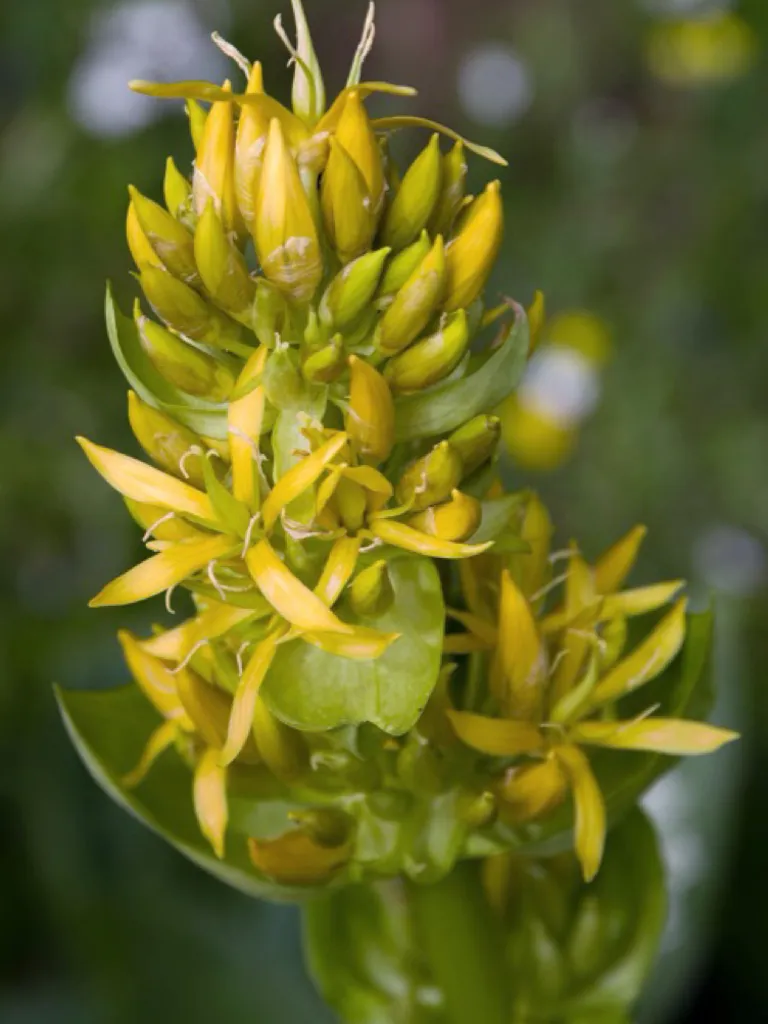
The Great Yellow Gentian is used for lowering blood pressure and soothing upset stomachs.
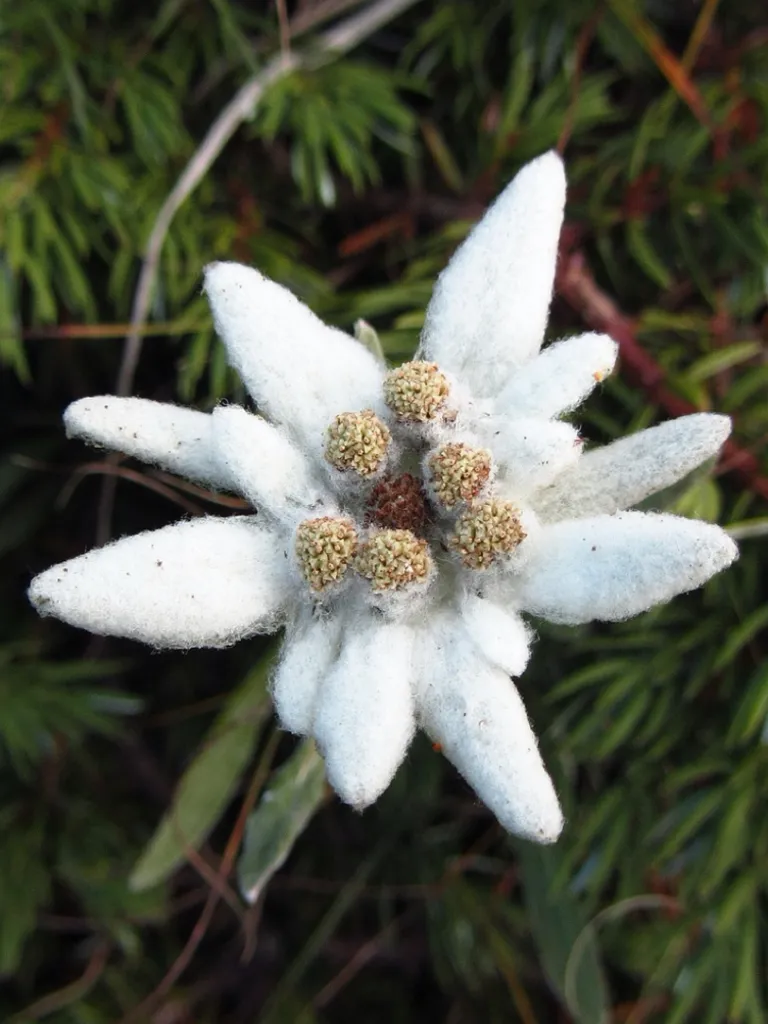
Edelweiss is known for its ability to help the skin protect itself from ultraviolet radiation, as well as being an anti-inflammatory and high in antioxidants.
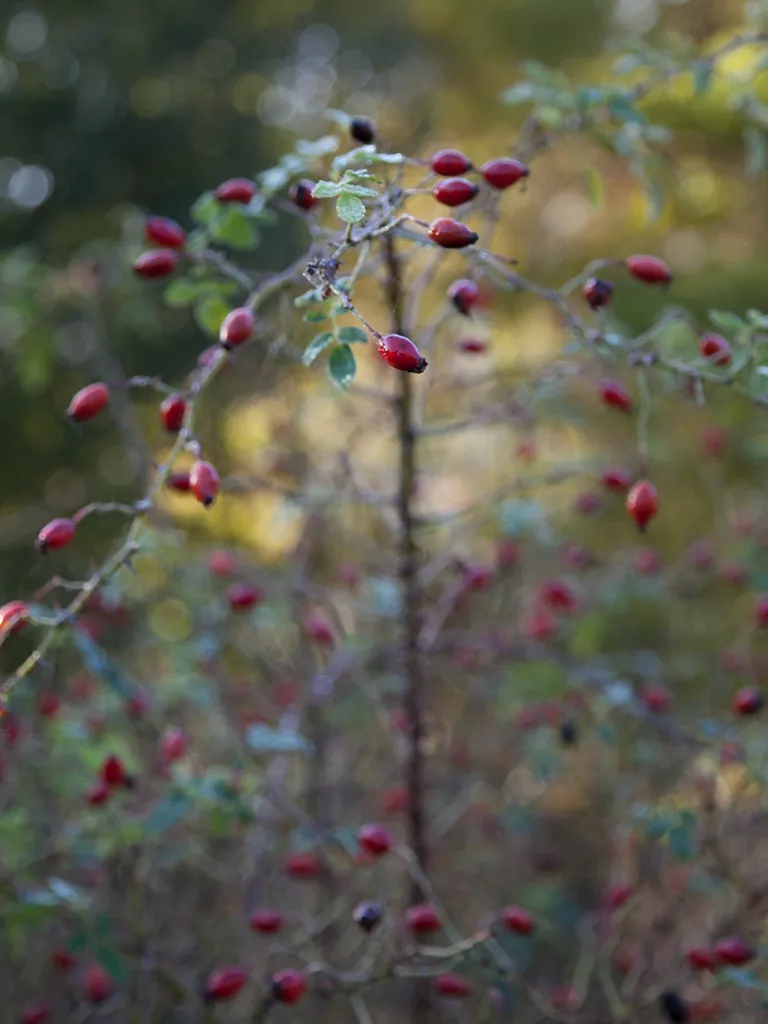
Rose hip can be used to alleviate arthritis and back pain, as well as promote circulation and reduce inflammation.
A number of farms and educational centers across the country offer workshops and seminars on the medicinal uses of native plants—with one standout being the “Kräuterwerk im Strohturm” in Densbüren just 40 minutes west of Zurich—and many organizations give would-be botanists a chance to educate themselves on the subject, such as The European Gentian Association in Lausanne. The yellow flower pictured above is the Great Yellow Gentian, used for lowering blood pressure, soothing upset stomachs, and Gentian schnapps.
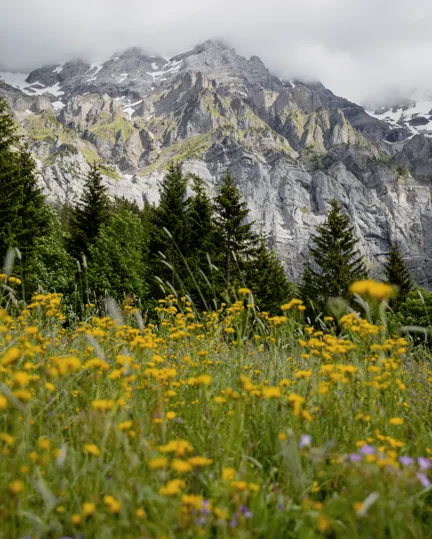
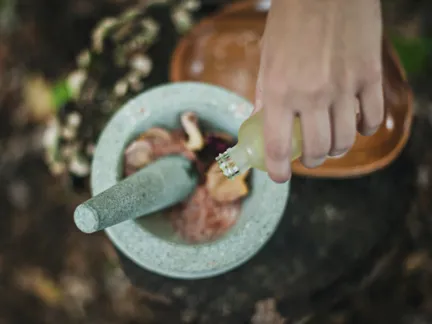
What better time to sink a schnapps than after a pampering at one of the many natural hot springs around the country. Wherever you are, there’s bound to be one around: any place with “bad” (meaning “bath”) in the name should do the trick. In addition to alleviating a number of maladies associated with arthritis, paralysis, headaches, depression, and stress, therapeutic mineral pools and thermal baths in Switzerland come with impressive mountain views and are best enjoyed après-ski or on a long road trip across the country, with Leukerbad, Brigerbad, and Bad Alvaneu on the must list.
Words Tom Osmond Date 13 October 2020
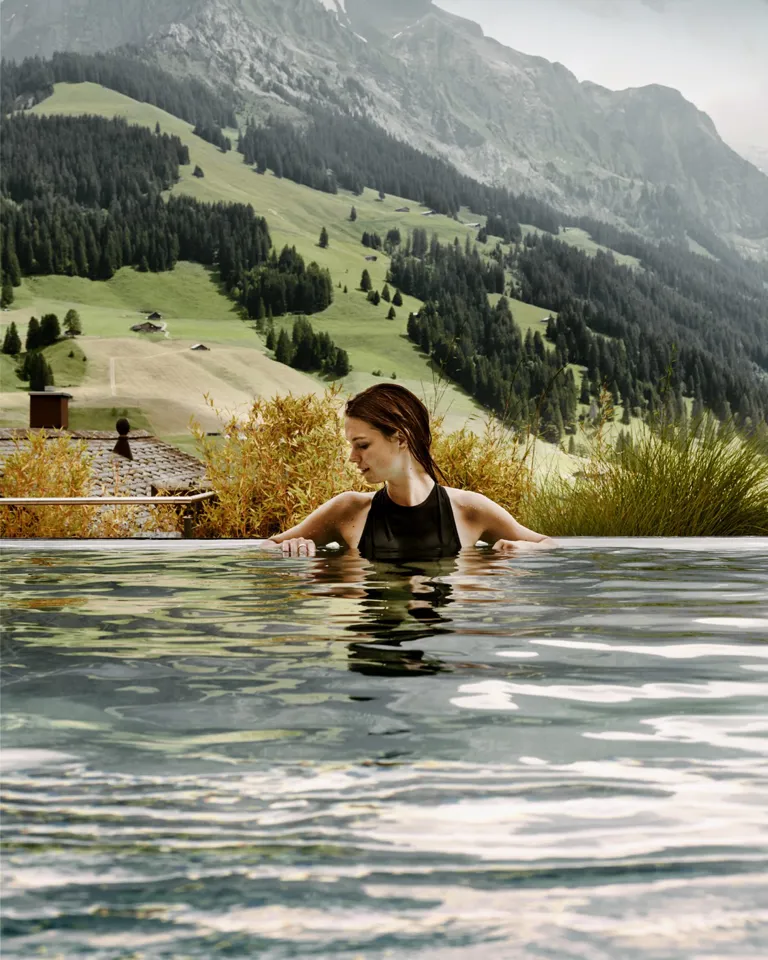
The outside pool at The Cambrian looks out over the valley of Adelboden
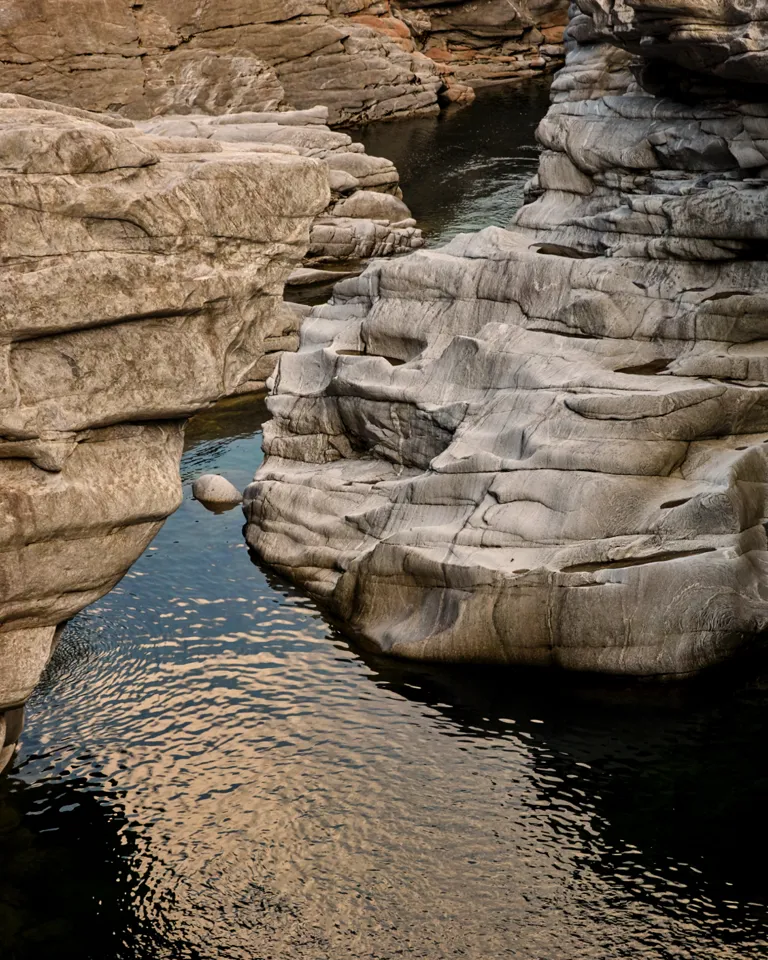

Take your primordial curiosities for nature out for a stroll through Switzerland’s Alpine landscape, which is more forest than mountain with these six trails. Click below and off you go.
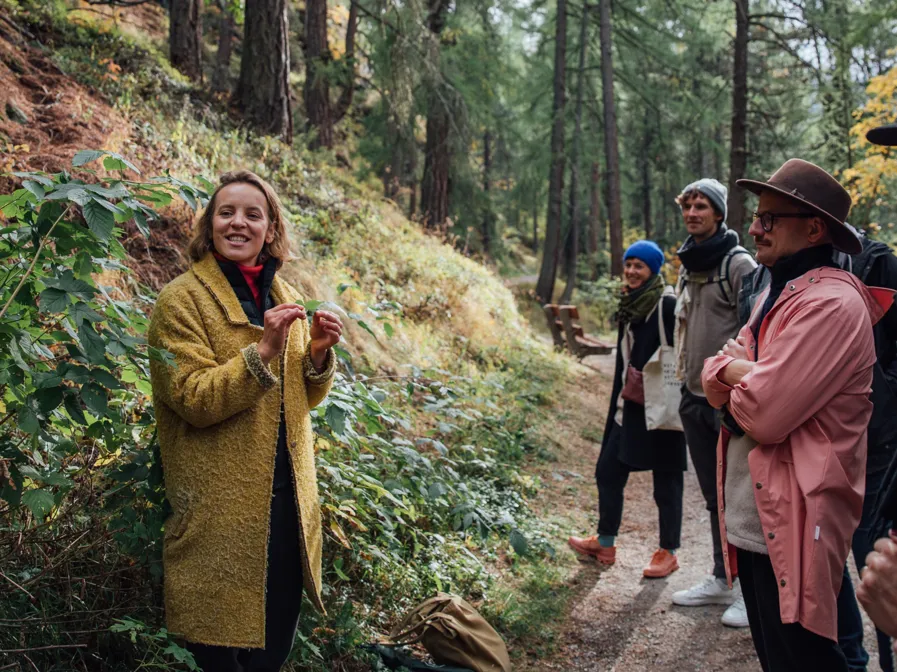
Destinations
We talked with the herbalist about her passion for going out into the forest, reconnecting and being in sync with nature like our ancestors, and what being out there can teach us about ourselves.
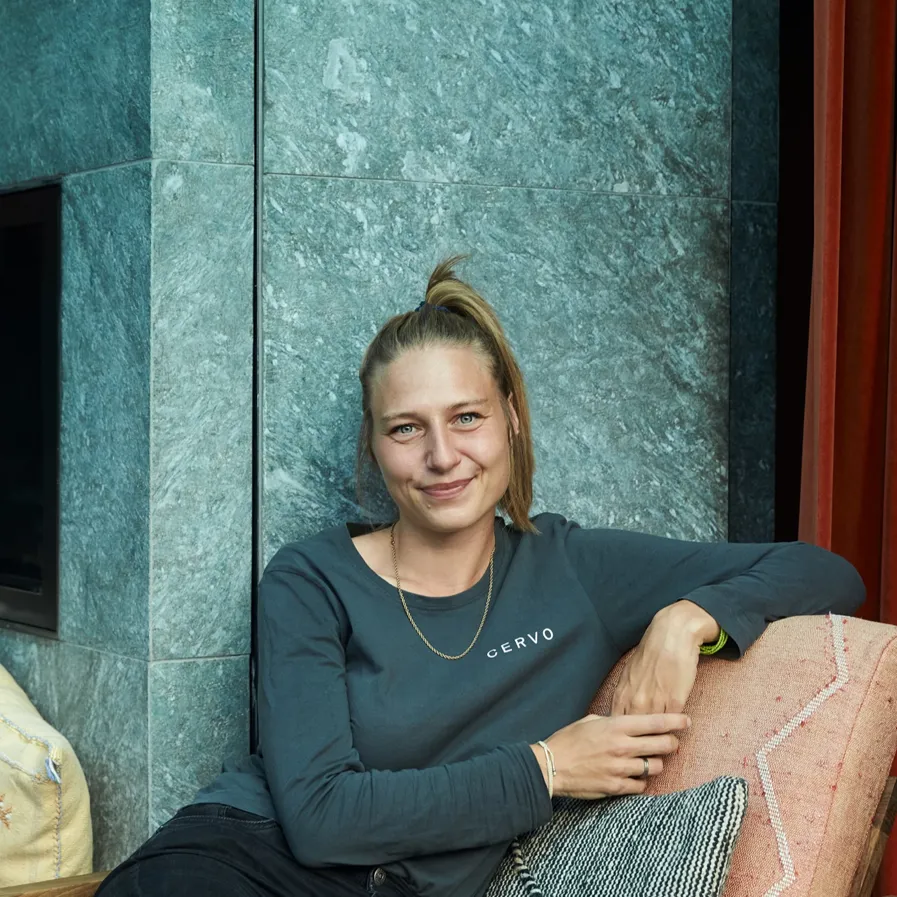
Conscious Future
We interviewed Madeleine Dias de Rezende, Sustainable Development Manager at Zermatt’s Cervo Mountain Resort, about the hotel’s inspiring culinary program, her learnings, her challenges, and why she’s optimistic about the future.
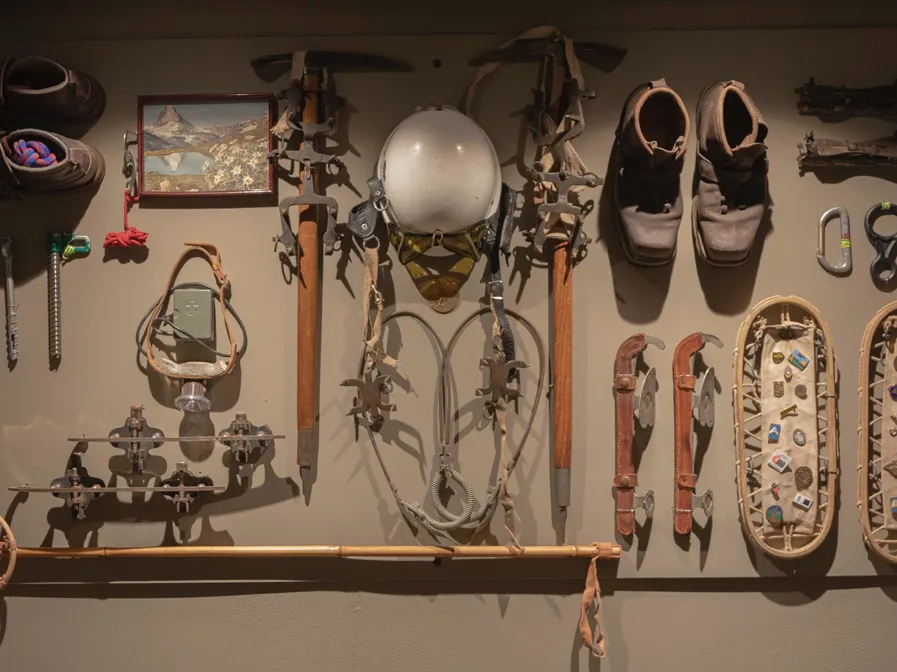
Destinations
The newly revamped Cervo Mountain Resort looks to the future where long-standing tradition meets the spirit of discovery of the modern nomad.
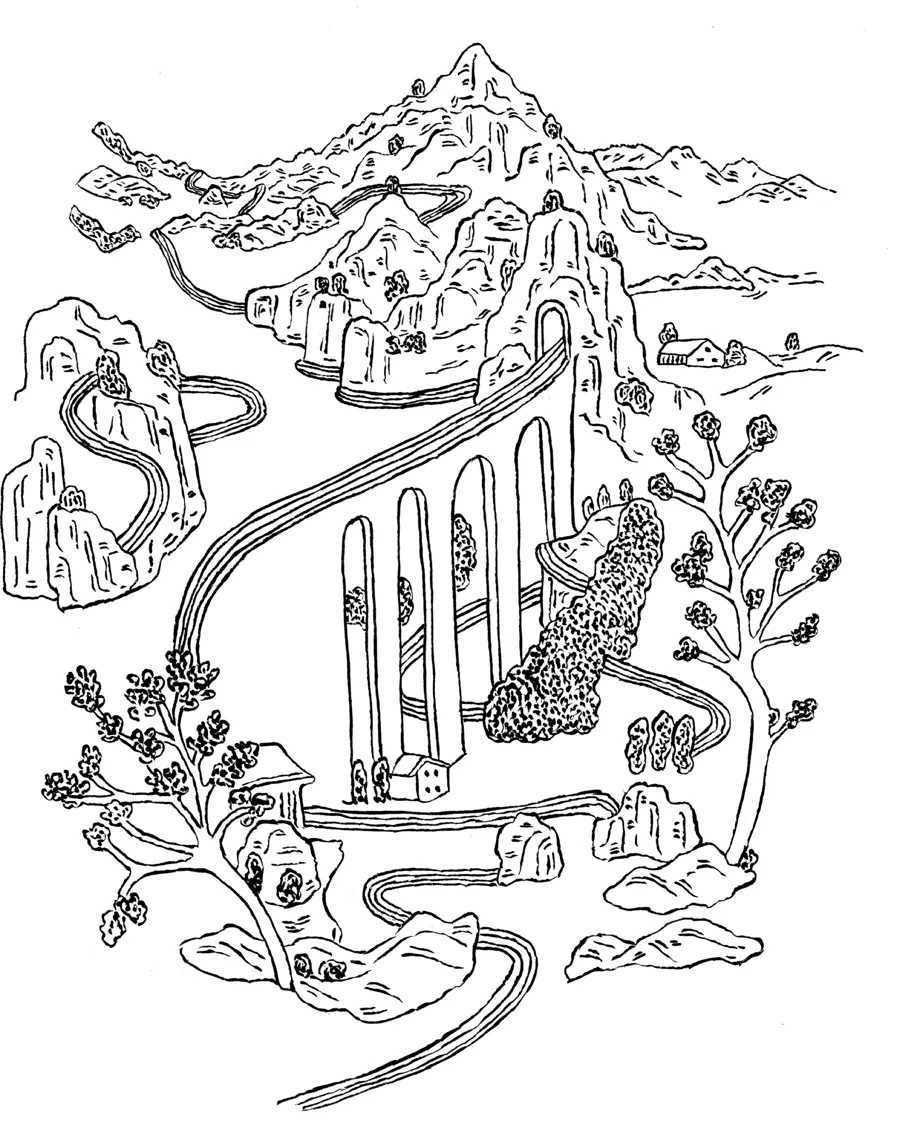
Destinations
I woke as the train pulled into the station. Chur is a charming little city nestled between mountains, but I was there only to catch a bus and drive another hour to the ski town of Laax.
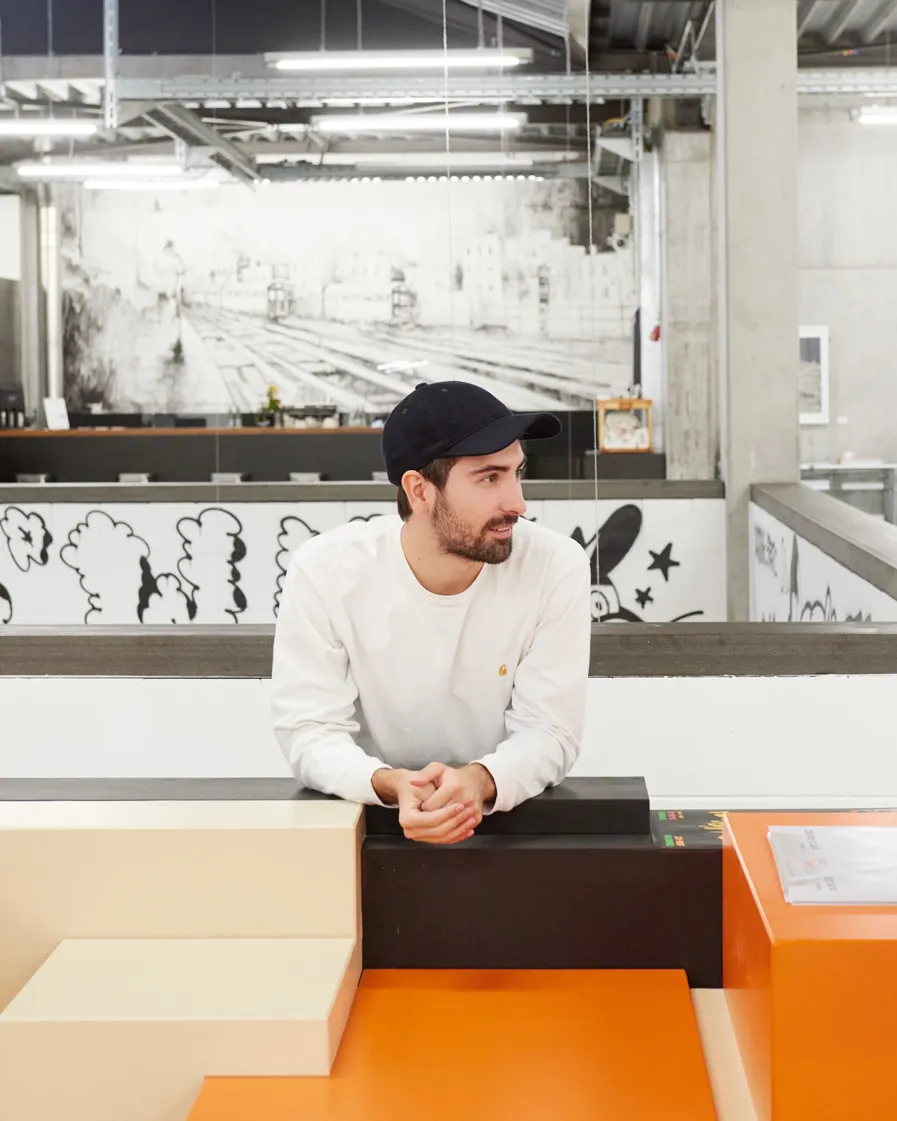
Originals
“We want our guests to feel connected and inspired, and few things do that on such a deep, emotional level as art.”
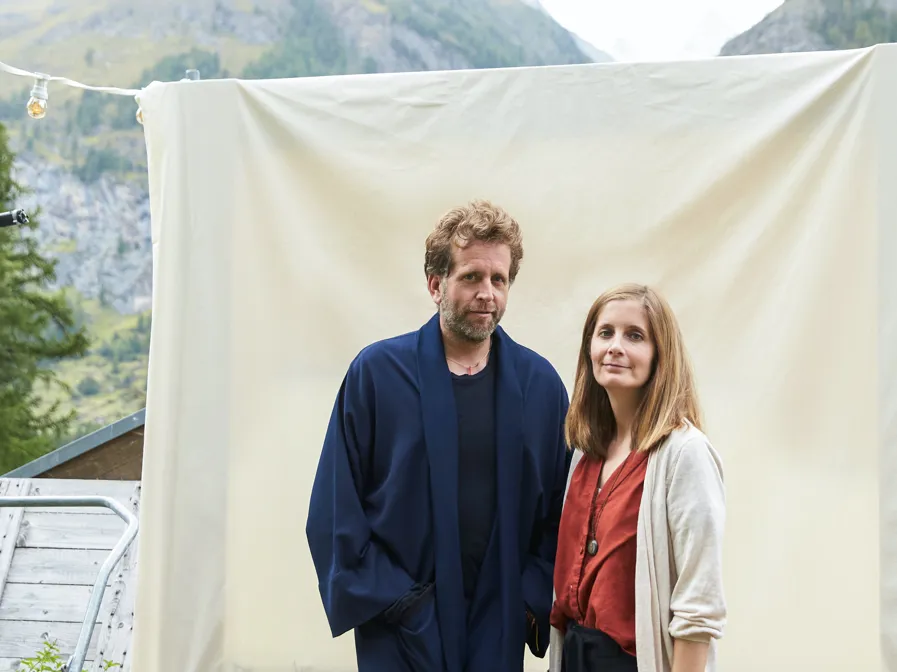
Originals
Following an eight-month renovation that began in summer 2020, Cervo Mountain Resort in Zermatt, Switzerland, has become a showcase for sustainability with a new well-being philosophy that calls upon practices from around the world to heal body, mind, and spirit.